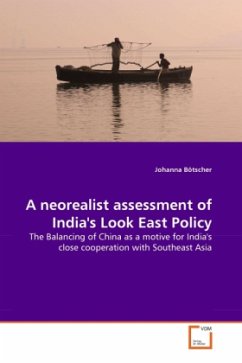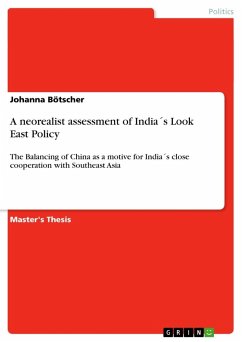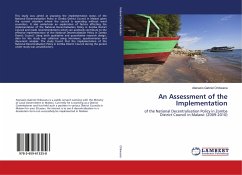In line with its new foreign policy after the end of the Cold War India started to significantly increase its political, economic and military ties with Southeast Asia in the beginning of the 1990ies. This so-called Look East Policy has grown to a strong and multifaceted partnership that constitutes a major component of Indian foreign policy today. The purpose of this book is to evaluate India's motives for its strong interactions with Southeast Asia. It follows a neorealist understanding of International Relations by arguing that the Look East Policy is primarily a strategy of the Indian government to counterbalance the growing Chinese influence in Southeast Asia: Due to the geographic closeness of the Asia Pacific region to the Indian subcontinent, China's presence there is particularly worrisome for India. It thus aligns with the Southeast Asian states to push back the Chinese power. The book aims at confuting liberal critiques on the balance of power theory and shows that theconception has still an enormous predicative power in 21st century. It tests the balance of power theory on the basis of two case studies: the India-ASEAN FTA & India's close cooperation with Myanmar
Bitte wählen Sie Ihr Anliegen aus.
Rechnungen
Retourenschein anfordern
Bestellstatus
Storno








